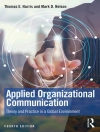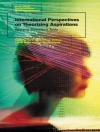Like all writing, biographies are interpretive. In Interpretive Autoethnography, Norman Denzin combines one of the oldest techniques in the social sciences with one of the newest. Bringing in elements of postmodernism and interpretive social science, he reexamines the biographical and autobiographical genres as methods for qualitative researchers. Grounded in theory and rigorous analysis, this accessible book points up the inherent weaknesses in traditional biographical forms and outlines a new way in which biographies should be conceptualized and shaped. The book provides a guide to the assumptions of the biographical method, to its key terms, and to the strategies for gathering and interpreting such materials. Denzin introduces the key concept of ‘epiphany, ‘ or turning points in person’s lives. A final chapter returns to autoethnography’s primary purpose: to make sense of our fragmented lives.
Jadual kandungan
1. Assumptions of the Method
2. A Clarification of Terms
3. Interpretive Guidelines
4. Selves, Stories, Experiences
5. Evaluating Performance Autoethnography
6. In Conclusion: Performing Lives
Mengenai Pengarang
Norman K. Denzin was Distinguished Emeritus Professor of Communications, College of Communications Scholar, and Research Professor of Communications, Sociology, and Humanities at the University of Illinois at Urbana-Champaign, USA. One of the world’s foremost authorities on qualitative research and cultural criticism, he was the author or editor of more than 30 books, including The Qualitative Manifesto; Qualitative Inquiry Under Fire; Reading Race; Interpretive Ethnography; The Cinematic Society; The Alcoholic Self; and a trilogy on the American West. He was past editor of The Sociological Quarterly, co-editor of six editions of the landmark SAGE Handbook of Qualitative Research, co-editor (with Michael D. Giardina) of 18 books on qualitative inquiry, co-editor (with Yvonna S. Lincoln and Michael D. Giardina) of the methods journal Qualitative Inquiry, founding editor of Cultural Studies-Critical Methodologies and International Review of Qualitative Research, editor of four book series, and founding director of the International Congress of Qualitative Inquiry.












